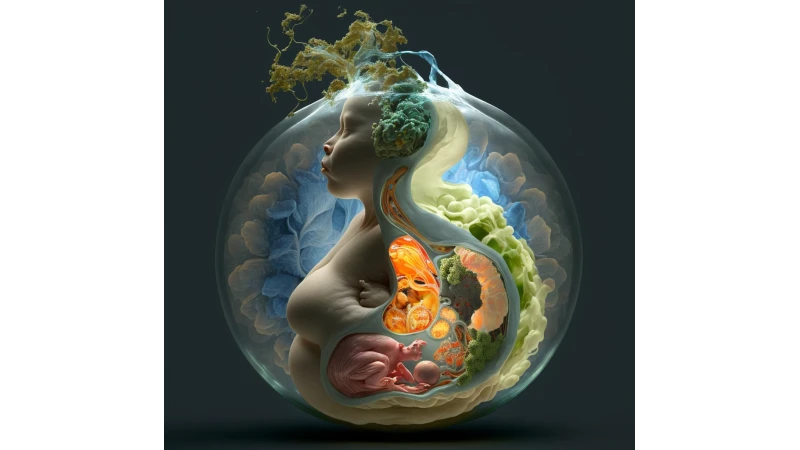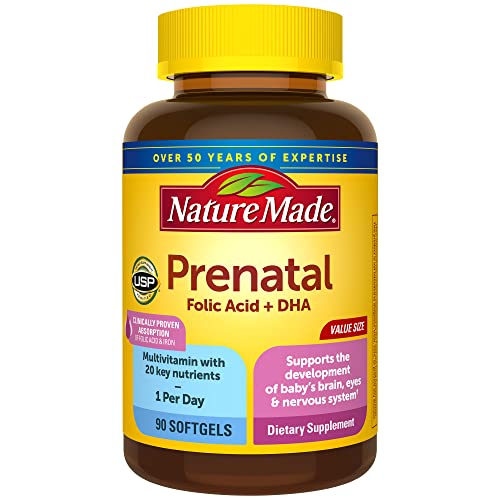Disclosure: This post may contain affiliate links, meaning we get a commission if you decide to make a purchase through our links, at no cost to you. Please read our disclosure for more info.
In This Post:
- How an Unborn Baby Receives Nutrients An unborn baby does not experience hunger in the same way that a person who is able to eat would. The baby receives all of its necessary nutrients through the placenta and umbilical cord, which are connected to the mother’s body. The placenta is an organ that develops in the uterus during pregnancy and provides a pathway for the exchange of nutrients, oxygen, and waste products between the mother’s bloodstream and the baby’s bloodstream. The umbilical cord is the structure that connects the baby to the placenta and allows for the transfer of these materials. Role of the Placenta
- Nutritional Needs During Pregnancy
- Importance of Prenatal Nutrition
How an Unborn Baby Receives Nutrients
An unborn baby does not experience hunger in the same way that a person who is able to eat would. The baby receives all of its necessary nutrients through the placenta and umbilical cord, which are connected to the mother’s body. The placenta is an organ that develops in the uterus during pregnancy and provides a pathway for the exchange of nutrients, oxygen, and waste products between the mother’s bloodstream and the baby’s bloodstream. The umbilical cord is the structure that connects the baby to the placenta and allows for the transfer of these materials.
Role of the Placenta
The placenta is responsible for producing hormones that are necessary for the growth and development of the baby, as well as for maintaining the pregnancy. One of these hormones is human chorionic gonadotropin (hCG), which helps to support the growth of the placenta and the baby’s nutritional needs. The placenta also helps to filter out any harmful substances that the mother may be exposed to, such as toxins or drugs, to protect the baby.
Nutritional Needs During Pregnancy
First Trimester
During the first trimester of pregnancy, the baby’s growth is primarily focused on the development of its vital organs, such as the heart, brain, and lungs. The baby’s nutritional needs at this stage are relatively low, but it is still important for the mother to maintain a healthy diet to provide the necessary nutrients for the baby’s growth and development. This includes a balanced diet with plenty of fruits, vegetables, protein, and whole grains. The mother should also avoid any substances that can be harmful to the baby, such as alcohol or cigarettes.

Second Trimester
As the pregnancy progresses, the baby’s nutritional needs increase as it grows larger and its organs and systems continue to develop. By the second trimester, the baby’s body begins to produce its own hormones, including insulin which helps the baby to regulate its own blood sugar levels. The baby’s brain and nervous system also continue to develop rapidly during this time, and it is important for the mother to consume enough choline, a nutrient found in eggs, fish and meat, to support this development.
Third Trimester
In the third trimester, the baby’s growth rate accelerates, and it gains most of its weight during this time. The baby’s lungs and nervous system are fully developed by the end of this trimester, and the baby is considered full term at 37 weeks. The baby’s nutritional needs are at their highest during this time, and it is important for the mother to consume enough calories, protein, iron, and other essential nutrients to support the baby’s growth.
Importance of Prenatal Nutrition
It is important for the mother to consult with her healthcare provider to ensure that she is consuming a healthy and balanced diet during pregnancy, as well as to monitor her weight gain and the baby’s growth. In some cases, the healthcare provider may recommend taking prenatal vitamins or supplements to ensure that the mother is getting all the necessary nutrients for the baby’s growth and development.
In conclusion, an unborn baby does not experience hunger in the same way that a person who is able to eat would. The baby receives all of its necessary nutrients through the placenta and umbilical cord, which are connected to the mother’s body. The placenta is an organ that develops in the uterus during pregnancy and provides a pathway for the exchange of nutrients, oxygen, and waste products between the mother’s bloodstream and the baby’s bloodstream. The mother should maintain a healthy diet to provide the necessary nutrients for the baby’s growth and development, and consult her healthcare provider for guidance on prenatal nutrition. It is essential for the mother to take care of her own health and nutrition during pregnancy to ensure the well-being of both her and her unborn baby.



